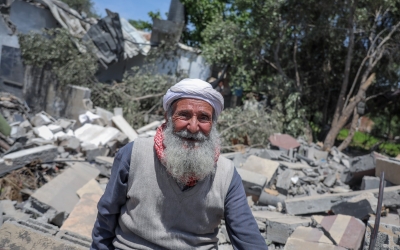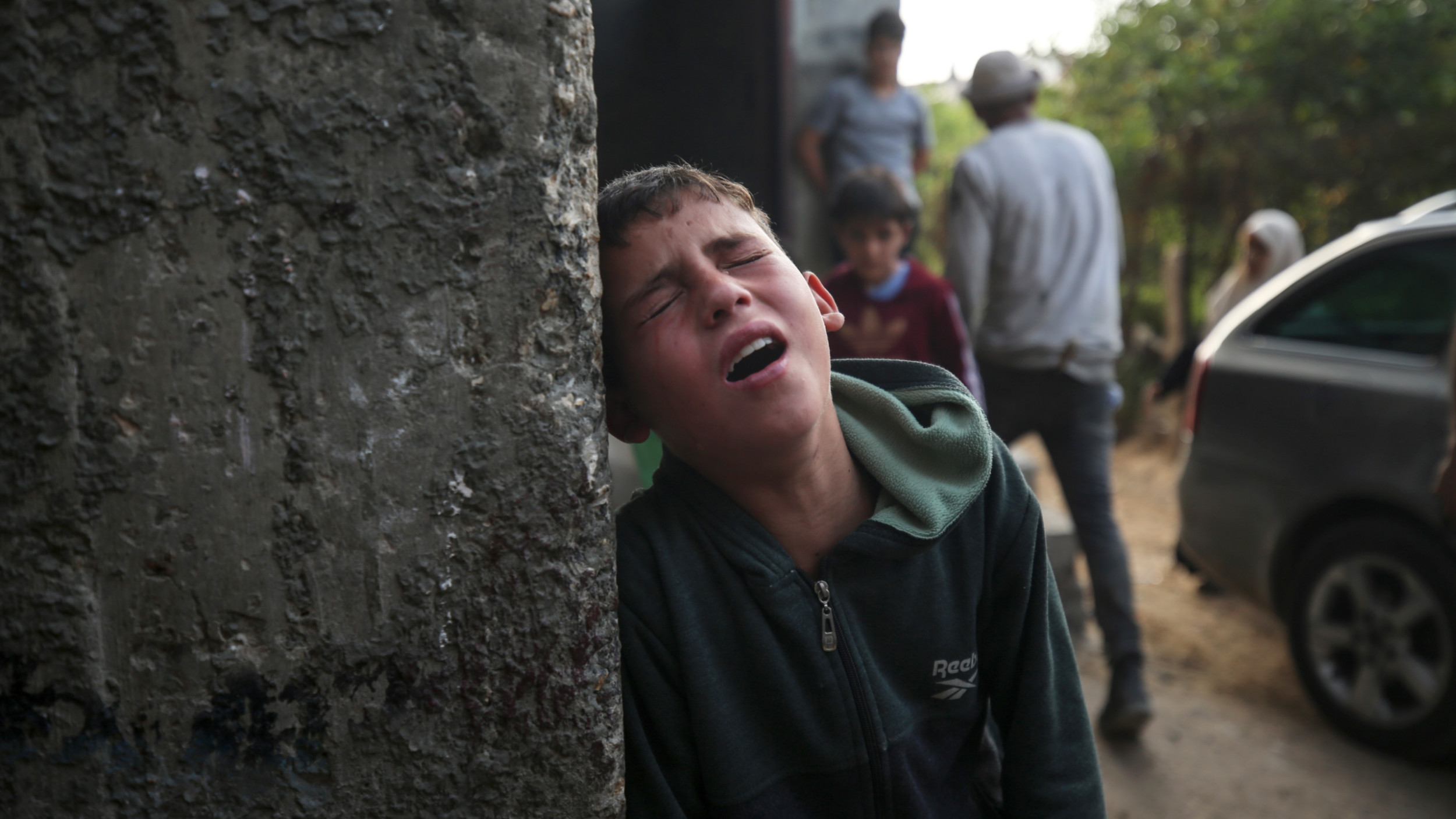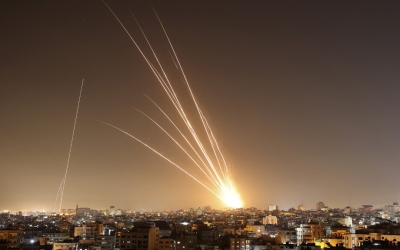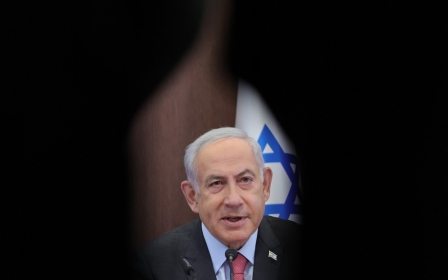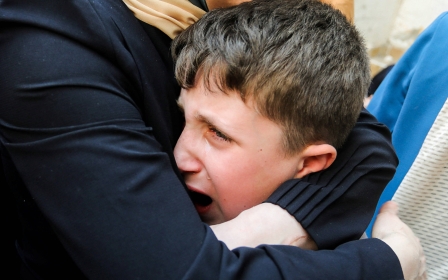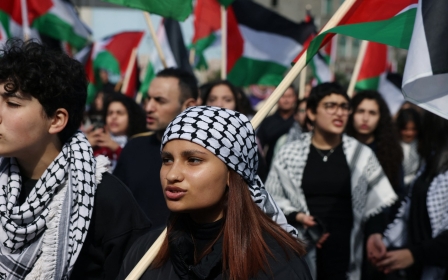Israel wins nothing from another Gaza assault - but Netanyahu might
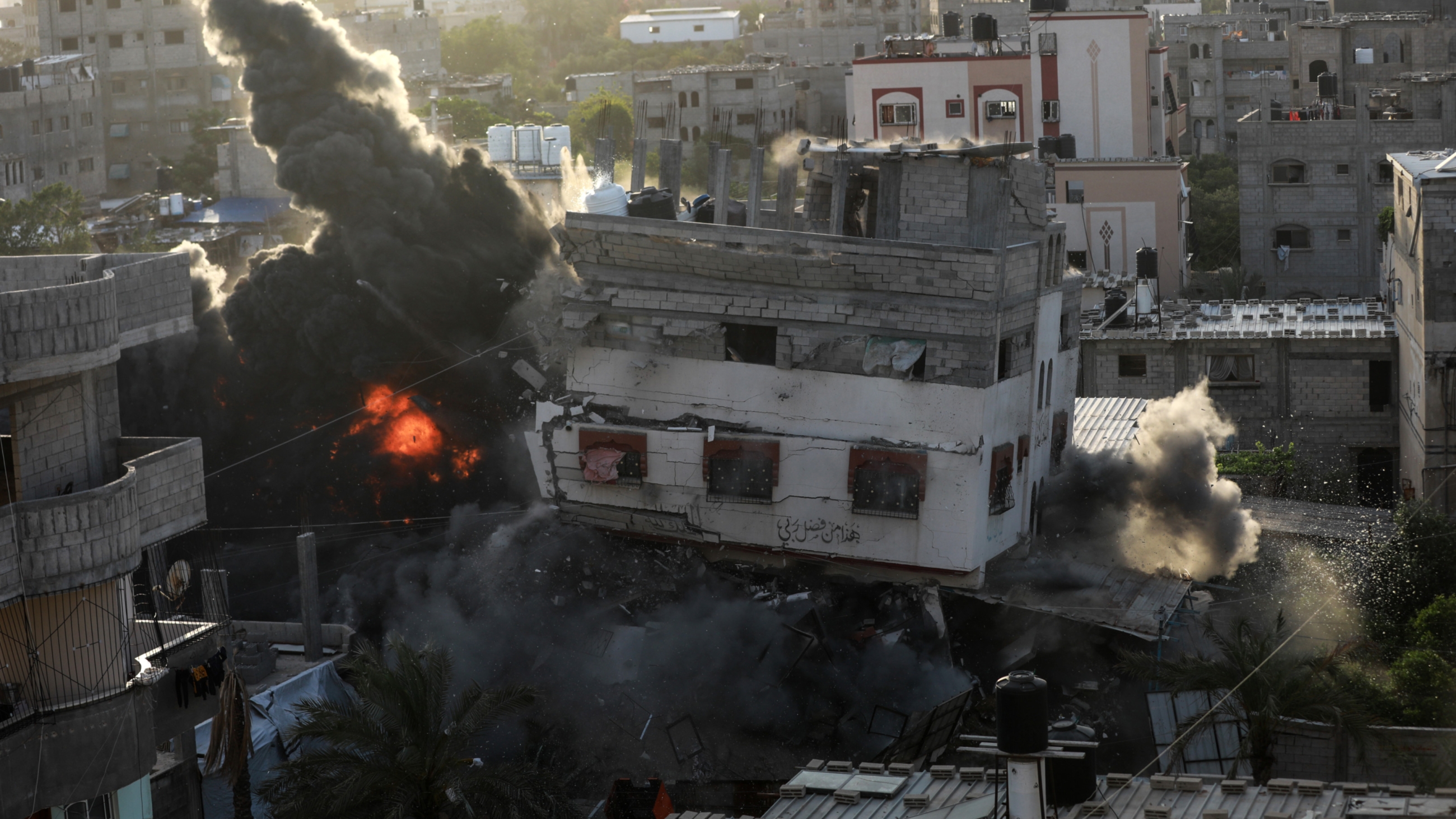
Those saying Israel's latest assault in Gaza was just a bleeding exercise in futility fail to understand the real purpose behind it.
Polls released by major Israeli channels after the ceasefire, which was signed on Saturday night, prove beyond doubt the operation achieved its main goal from the government’s perspective: the popularity of Prime Minister Benjamin Netanyahu’s coalition was on the rise.
Netanyahu was trailing in polls to his opposition rivals days before the bombing campaign, dubbed “Operation Shield and Arrow”, was launched on 9 May with a series of overnight assassinations.
Five days of Gaza bleeding - in which 33 Palestinians, including six children, were killed - and the ongoing bleeding of Netanyahu’s coalition was miraculously cured. Mission accomplished.
Netanyahu has restored his image as “Mr Security” - not the ailing prime minister accused of leading his country into a dictatorship with his government’s controversial judicial overhaul plan.
New MEE newsletter: Jerusalem Dispatch
Sign up to get the latest insights and analysis on Israel-Palestine, alongside Turkey Unpacked and other MEE newsletters
“The only achievement of this military operation is the security of Netanyahu’s coalition,” Zehava Gal-On, former head of the leftist Meretz party, told Middle East Eye.
'In the absence of any strategy, all Israelis can expect is more rounds of violence with shorter breaks between them'
- Daniel Rothschild, head of Israeli think tank
Strangely enough, this miraculous recovery has nothing to do with how Israelis feel about the outcome of the five-day assault.
A poll conducted by Channel 12 a day after the ceasefire showed that 42 percent of respondents believed the operation strengthened Israeli deterrence.
Around 44 percent believed it made no difference and five percent thought it made it worse.
This indifference is echoed by politicians on both sides of the spectrum.
Members of the coalition, both from Netayhu’s Likud party and his allies in the far-right Religious Zionism party, sound unhappy with how the operation ended. They wanted more.
The same goes for Avigdor Lieberman, leader of the opposition right-wing Yisrael Beytenu party, who blamed Netanyahu for creating a “Hezbollah in the south” by not attacking Hamas, the Palestinian group which rules over Gaza.
On the left, politicians repeated the same knee-jerk reaction of non-judgmental support for the attacks.
Labor MP Efrat Rayten, for example, was more worried about how it was going to be “difficult to explain” the images of children killed in Israel’s air strikes, rather than questioning the purpose behind the bloodshed.
No vision for Gaza
In Israel, the very same people who doubt the merit and logic of the operation once it ends are the ones who support it as it unfolds - and politically reward Netanyahu for launching it.
And there’s very little reasonable explanation behind this.
Perhaps it’s not fair to expect reason from people who follow a leadership that lacks any meaningful logical or moral considerations.
After all, what do you expect of a military and political establishment that refers to the killing of Palestinian children as “collateral damage”?
But many in Israel have learned that after almost 20 years of 15 futile “operations”, a blockade, mass killings, “targeted eliminations,” and the destruction of Gaza - along with thousands of rockets fired into Israel’s south and centre in response - this is not the answer.
However, no one offers an alternative, and more bloodshed seems to be the only option.
Those same people who support the operation know that the next one is just around the corner. They know that the Islamic Jihad “senior leaders” that Israel assassinated will be replaced quickly.
“In the absence of any strategy, all Israelis can expect is more rounds of violence with shorter breaks between them,” said Daniel Rothschild, head of the Institute for Policy and Strategy think tank and former military general.
“As long as Netanyahu applies his tactical approach of divide and rule between Palestinian Authority (PA) in the West Bank and Hamas in Gaza - effectively weakening one and strengthening the other - and unless they come up with a holistic strategy that includes both the West Bank and Gaza, we are doomed to have more tactical rounds coming one after another,” Rothschild told MEE.
His views are shared by Yair Golan, the Israeli military's former deputy chief of staff and now a politician with the left-wing Meretz party.
“What have we gained from this operation? Nothing,” Golan told MEE two days into the ceasefire.
Since Israel unilaterally “disengaged” from Gaza in 2005, pulling out troops and settlements that were in the strip since it was occupied in 1967, little has changed in the strip, he added.
The military presence was replaced by an air, land and sea blockade, which turned the densely populated enclave into the largest “open-air prison”, according to human rights groups.
The military also launched repeated operations in Gaza from 2006 onwards, killing more than 6,000 Palestinians in less than two decades.
Under Netanyahu’s leadership, this policy has meant that Israel is effectively working against its interests by weakening the PA and strengthening Hamas, Golan argued, keeping the region "stuck in an endless confrontation".
The deterrence equation
The declared aim of the latest assault was the Islamic Jihad, the second biggest armed group in Gaza behind Hamas.
This is the third time since 2019 that the group has been singled out in attacks by Israel in which Hamas was not targeted.
Despite widespread speculation, Hamas - which has a much bigger arsenal than the Islamic Jihad - did not publicly confirm if they joined other armed groups in launching retaliatory rockets at Israel.
During a visit two days after the assault to Ashkelon, one of the cities that came under heavy rocket fire, Netanyahu hailed the success of the operation.
He said it "changed the deterrence equation" with armed groups in Gaza - an assertion dismissed by Golan.
"Once again, we just bought time, limited time. How long?" he asked, arguing that the question on whether Hamas joined the fighting or not was irrelevant.
“Hamas was in no rush to reach a ceasefire. They offered the Islamic Jihad moral support and probably arms and weapons as well," he explained.
Cracks in the protests?
Another collateral damage of the five days of bloodshed in Gaza might be the months-long mass protest movement against Netanyahu's “regime change”.
Since January, hundreds of thousands of Israelis have been rallying weekly against a judicial overhaul proposal presented by the government which critics say will weaken the country's judiciary.
In late March, Netanyahu postponed the plan amid widespread strikes and protests. He said he wanted to give room for talks with the opposition in the hopes of reaching a consensus regarding the plan.
No progress has been made in the discussions so far, and the issue is expected to come back to the fore of Israeli politics by the end of May once the state budget is passed.
The common struggle against what many views as a pending dictatorship seemed to unite Israelis otherwise divided by many schisms in the relentless demonstrations from January until now.
But that might change after the Gaza assault.
One of the leading groups in the demonstrations, Brothers in Arms, a grouping of reservists, was quick to publish a poster in support of the “brothers in arms” bombing Gaza - a statement that drew the ire of others in the protests movement.
Another dominant protest group, Black Flags, decided to cancel the weekly demonstration last Saturday as the fighting was still unfolding, an announcement ignored by some protesters who showed up to the rallies anyway.
These could be small cracks in the thin armour of Israeli opposition solidarity that can be easily fixed. Or they could be the beginning of a crisis: war with Palestinians could see many in the opposition camp rally around national "defence" and break the momentum of protests.
For Netanyahu's government, this could be the big collateral benefit of his bombing campaign.
Middle East Eye delivers independent and unrivalled coverage and analysis of the Middle East, North Africa and beyond. To learn more about republishing this content and the associated fees, please fill out this form. More about MEE can be found here.


